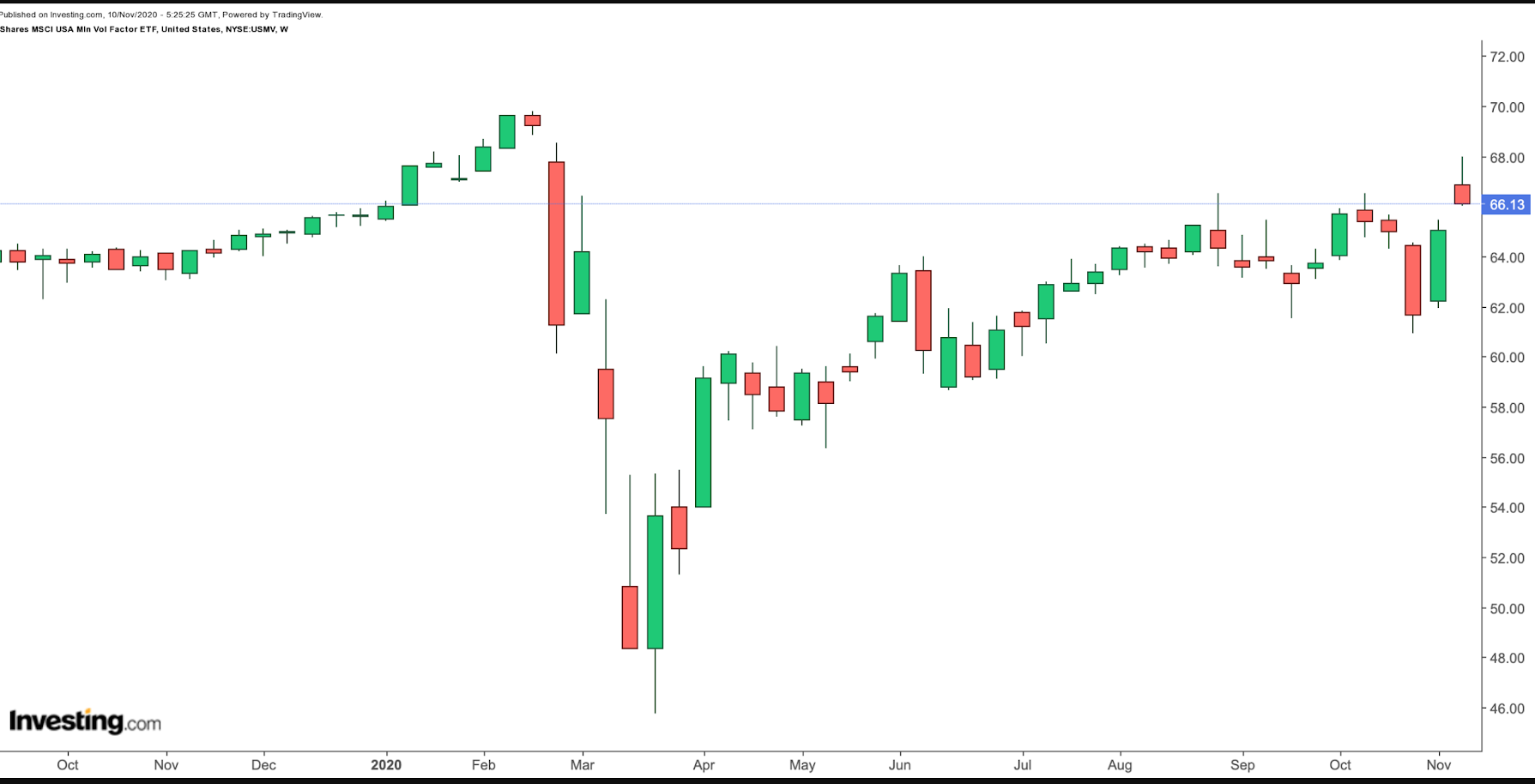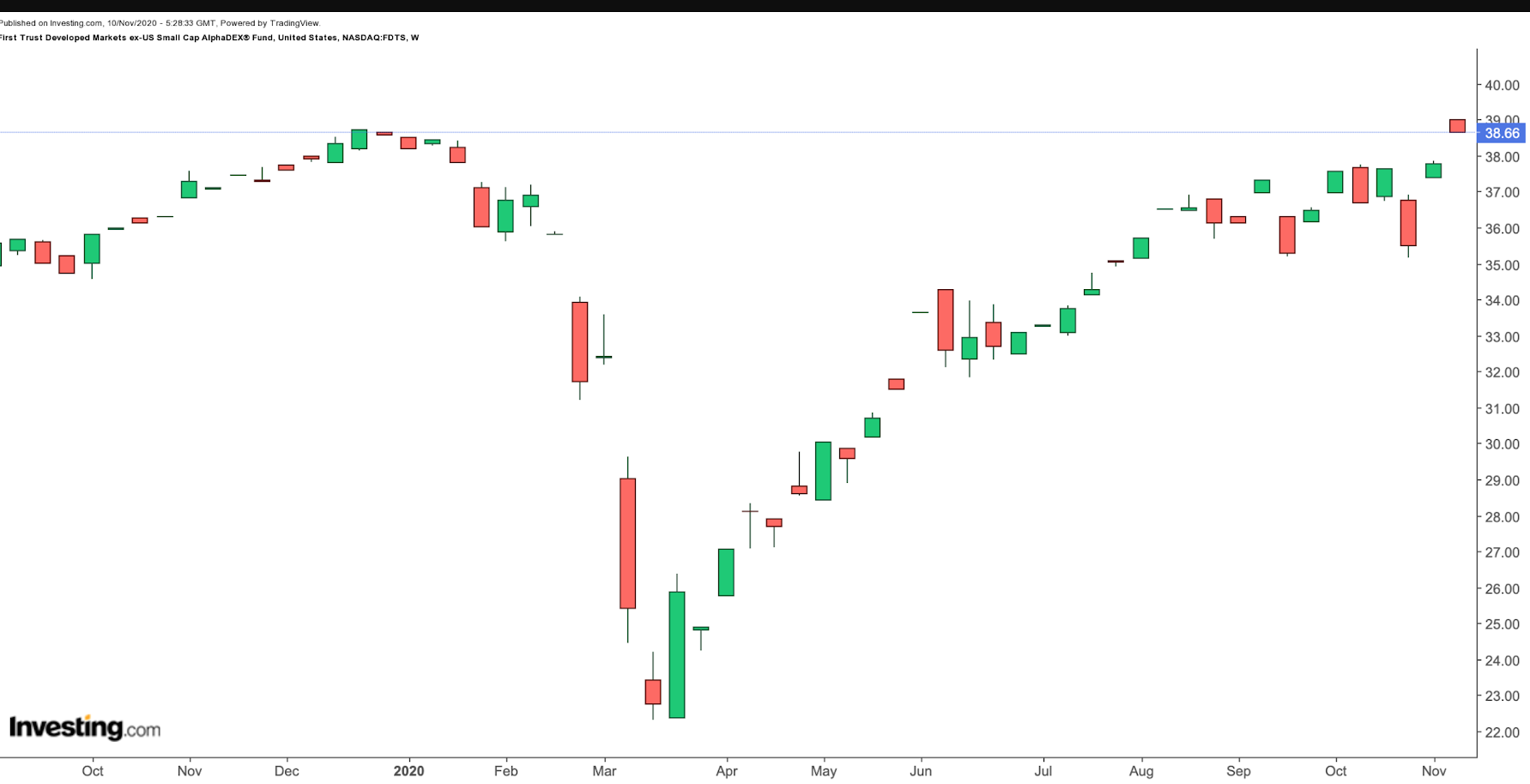At times during 2020 it has felt like the markets have been on a rollercoaster ride. Global lockdowns, rock-bottom interest rates, increased stimulus measures, and the recent US Presidential election are all playing a part in the growing market volatility this year.
On Oct. 29, the CBOE Volatility Index, the most important benchmark for US stock market volatility, hit a recent intraday-high of 41.16. Since then, it has been declining and is now back at about 25. However, levels could pick up again in the coming days.
Finding ways to navigate periods of increased volatility, without over-reacting to short-term choppiness is key. Diversification across countries and sectors is one tool to manage risk when volatility rises.
In September, we examined one fund that could help investors navigate volatile markets. Below we'll look at two more ETFs offering diversification during periods of higher volatility:
1. iShares MSCI USA Min Vol Factor ETF
- Current price: $66.09
- 52-week range: $45.75 - $69.79
- Yield: 2.01%
- Expense ratio: 0.15%
The iShares MSCI USA Min Vol Factor ETF (NYSE:USMV), which started trading in 2011, aims to provide exposure to US-based stocks that are likely to be less volatile than the broader equity market.

USMV has 194 holdings and tracks the MSCI USA Minimum Volatility (USD) Index. The top ten companies comprise around 15% of net assets of over $33 billion.
In terms of sector allocation, information technology has the highest weighting (22.25%), followed by health care (15.72%), consumer staples (11.91%), financials (11.42%) and utilities (8.67%).
The companies leading the fund include global clean energy firm NextEra Energy (NYSE:NEE), wireless service provider T-Mobile US (NASDAQ:TMUS), fast-food heavyweight McDonald's (NYSE:MCD), tech giant Microsoft (NASDAQ:MSFT) and Waste Management (NYSE:WM), whose name speaks for itself.
Since the start of the year, USMV is up 2%. Trailing P/E and P/B ratios stand at 23.24 and 3.66.
We should note that the fund's beta, which shows how sensitive its price is to a change in the market, stands at 0.74.
Since the beta of the broader market, such as the S&P 500 index, is 1, a fund like USMV with a beta of 0.74 would be expected to return 74% as much as the overall market. On the other hand, a stock with a beta of 1.3 would move 30% more than the overall market. A low-beta stock or fund has less risk but also lower returns.
Although the best use of the beta is debated as it does not say anything about the fundamentals of a company or companies within a fund, it could indicate short-term risks.
2. First Trust Developed Markets ex-US Small Cap AlphaDEX Fund
- Current price: $38.66
- 52-week range: $ 22.32 - 39.00
- Yield: 2.64%
- Expense ratio: 0.80%
First Trust Developed Markets ex-US Small Cap AlphaDEX® Fund (NASDAQ:FDTS) provides access to a wide variety of stocks outside the US.
Holdings are ranked according to fundamental growth and value measures. Price appreciation, sales to price and one-year sales growth are ways that growth is measured, while a company's value is evaluated by book value to price, cash flow to price and return on assets.

The UK-based electrical appliance retailer Ao World (LON:AO), Sweden-based e-commerce group Boozt (OTC:BOZTY), South Korea-based shipping container line HMM (ST:SWMA), and Japan-based Genky Drugstores (T:9267) are among the top names in the fund.
FDTS has 406 holdings. Shares of companies from Japan lead the fund (33.25%), followed by holdings in South Korea (23.04%), Canada (5.30%), and Australia (5.0%).
Year-to-date, the fund is down by 2%, closing yesterday at $38.66. Trailing P/E, P/S and P/B ratios are 8.63, 0.43 and 0.82, respectively. The current dividend yield stands at 2.48%. The fund may appeal to investors looking to diversify some of their capital away from the US markets.
